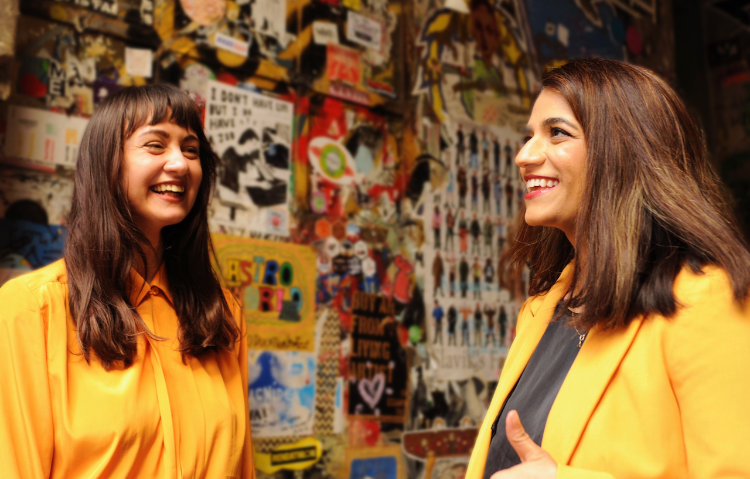Dash Markova started her first business—a co-working space and startup hub—in 2015 and has since gone on to launch three further ventures. Now, she has turned her focus toward the climate, founding Klimatic Group, a startup seeking to drive sustainable innovation by connecting companies with the sustainable tech they require.
As her latest venture, Klimatic Group is actively looking for its first clients and aspires to turn over €2 million within two years.
Here, Dash talks about her startup experiences, and how the network she developed during her MBA in Germany at ESMT Berlin was invaluable in helping her become a serial entrepreneur.
Klimatic Group is your fourth startup. Tell us about it…
Klimatic Group is where everything I had done before kind of came together: my experience in startup acceleration, interest in sustainability, and frustration with the “valley of death” in startup funding.
Climate tech startups and scale ups—especially those that aren’t built for hyper-growth—tend to fall through the cracks. Klimatic Group is built around a model called venture clienting: we help big corporates—mostly in energy, mobility, and real estate— find tech solutions for their sustainable challenges.
Where did the idea come from?
Years of running accelerator programs and working closely with early-stage startups. I started noticing a major gap—especially for sustainable companies. There’s a ton of activity in the very early stages, like pre-seed and seed rounds, and then a complete drop-off… classic funding dries up just when they need it most.
This “valley of death” is real. So with Klimatic Group, we’re trying to fill that gap—helping climate-friendly products that already exist to scale, instead of reinventing the wheel every time.

What part did your b-school experience play in your startup journey?
ESMT Berlin played a huge role in helping me develop my first business idea: I found my co-founder through the MBA program. The idea for our co-working space actually came from a consulting project he was working on.
The business school gave me a solid foundation, even though not always in the ways I expected. We had some entrepreneurship classes, but at the time (this was over a decade ago), they were more high-level and conceptual. Since then, things have changed a lot. In fact, I now serve on the Advisory Board for the Master in Entrepreneurship and Innovation program at ESMT, and I’m really glad to see how far it’s come. The curriculum is now much more hands-on, operational, and focused on the real grind of building a company.
The practical skills mattered, too. Financial planning, accounting, and team dynamics, all things I still use regularly. There was one phrase from a team leadership course that stuck with me, and I think about it almost weekly: “Be hard on the topic, soft on the people.”
Tell us about a typical working day for you now…
A typical day for me is centered on business development. I focus on establishing and growing the brand, which means having a lot of conversations—both strategic and tactical—about what venture clienting actually is, why it's more efficient than traditional innovation models, and how sustainable venture clienting can solve very specific challenges in sectors like energy, real estate, and mobility.
I spend my time doing two main things: promoting the concept, and engaging with stakeholders.
How has your b-school network helped with your business development?
It’s played a huge role: as I said, I met my co-founder through the MBA program, and through that connection met our first investor and business partner. That alone set everything in motion. But what really helped me survive, emotionally and practically, was the friendship network that came with it. I still feel incredibly lucky for that.
What advice would you give someone thinking about starting their own business?
Start with a real problem: Before anything else, get super clear on the problem you're trying to solve. And I mean really understand it—observe it, experience it, talk to people who live with it daily.
Don’t do it alone. Having a co-founder is incredibly helpful, but even if that’s not an option, build a circle of people around you who believe in the problem you're solving. Think of it as your "advisory board"—supporters, brainstormers, potential team members. If you can't get anyone excited enough to join you early on just as a no-commitment supporter, that might be a signal that something’s off.
Dare to try—but stay smart. You don’t have to quit your job or drop everything to get started. In fact, I don’t recommend doing that right away. Start while you’re still studying or working—use that time and stability to explore ideas, talk to users, test assumptions.
When you’ve really validated the problem and have a sense of how you might solve it—that’s when it’s time to go all in.


